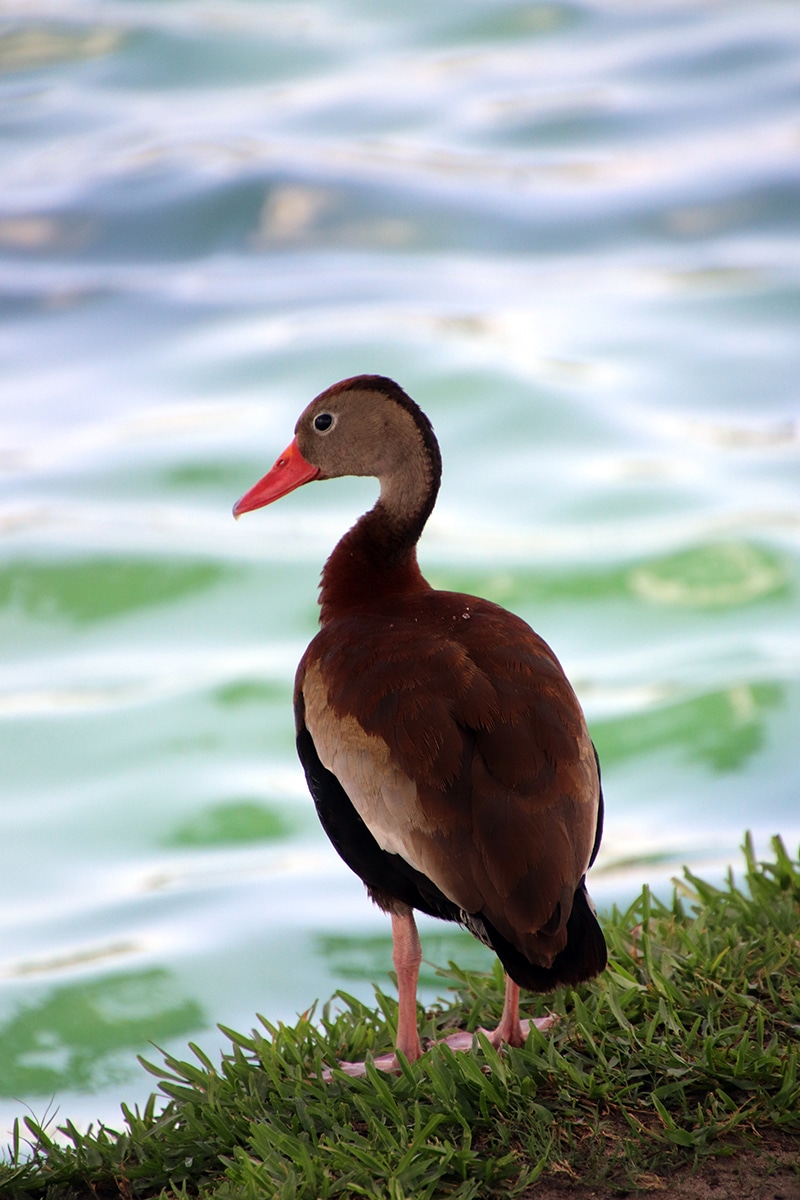Paddling with ease in front of Singing River Hospital, two black-bellied whistling ducks are raising a flock of little ducklings and catching the attention of staff and patients. Dozens of ducks call the pond home along with the family of black-bellied whistling ducks. These feathered friends provide a picturesque view and moment of tranquility for patients and staff who may want some fresh air, nice view of the pond, or are dropping in to feed the ducks.
Lee Bond, chief executive officer of Singing River Hospital, pointed out the family of whistling ducks and wanted to share their cuteness with the community. After contacting the Pascagoula River Audubon Center, we visited the pond to see this family of ducklings.
Straight away, we found out why they are so cherished as they paddled on the pond and rested in the shade of a tree. Lee Guy, facilities support manager, fondly recalls seeing ducks on the pond since he was a young boy and even remembered Duck Crossing signs along the road to help keep the ducks safe.
Families with children commonly visit to feed the ducks, and the hospital staff feeds the ducks daily with cracked corn near the pond. Bread is discouraged because of its low nutritional content, but healthy alternatives such as cracked corn, sliced grapes, oats, and lettuce are much better for the ducks.

Hospital staff cherish the ducks, and in the past, have protected flocks of mallard ducklings with a homemade indoor pond to keep them safe from predators like foxes or coyotes that have been known to thin out the population. Part of the conservation plan includes creating some nesting sites for the ducks so they have a protected area to nest and sleep.
Stop by Singing River Hospital in Pascagoula to see these ducklings before they outgrow this adorable phase. Visit the Pascagoula River Audubon Center to learn more about ducks, “like” us on Facebook or visit our website at pascagoula.audubon.org.